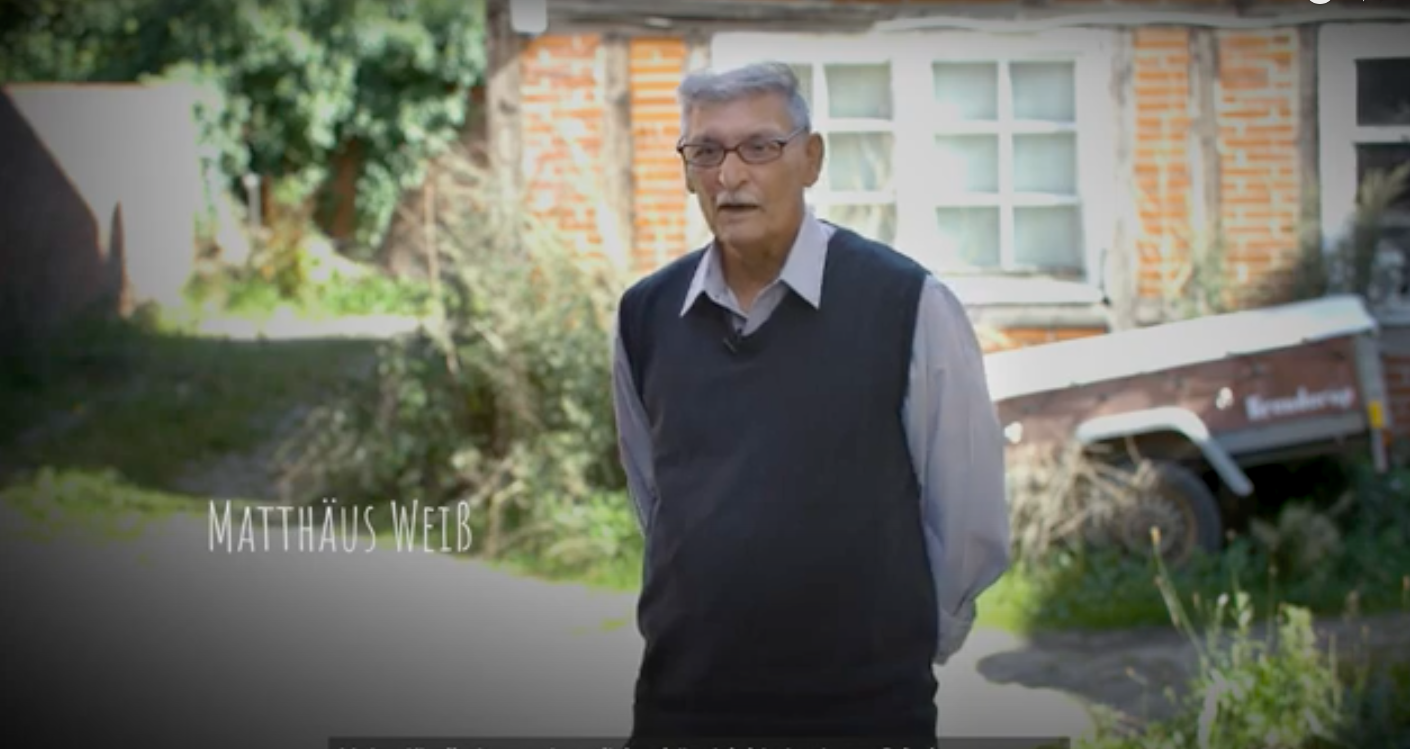"I am proud to be a Sinto" - Film about minorities in the German-Danish borderland celebrates premiere in the Minority Competence Network
19.05.2022There is Matthäus Weiß, Sinti, in front of his house in the countryside in Schleswig-Holstein. He talks about his childhood. He never went to school. His parents were too afraid that the same thing would happen to him as once happened to them: To be deported from school to a concentration camp. A trauma that has left its mark on generations. But he also says: "I am proud to be a Sinto."

Photo: Screenshot
And there is his granddaughter, Lucia Weiß, who tells of her beautiful childhood, of strong support in the family, of opportunities and respect. These are scenes that impressed the audience at the film premiere on Monday evening in Sankelmark near Flensburg. "This would have been unthinkable ten years ago," says Jan Diedrichsen, representative of the Schleswig-Holstein state parliament in Brussels, during the subsequent panel discussion. "It's great to see this self-confidence and openness of the Sinti and Roma."
The film "Think across borders", developed by the Minority Competence Network, portrays members of the four national minorities in the German-Danish borderland – the German Sinti and Roma, the North Frisians, the German minority in North Schleswig and the Danish minority in South Schleswig. It gives an insight into what constitutes the identity and culture of the minorities in this very special region, which is repeatedly regarded as a model in the global context.
"Home is where the German and Danish borders meet, where I can mix languages and still be understood," says Wienke Reimer from the Danish minority in Germany in the film. And: "Being part of a minority also means taking responsibility for the fact that we live in a diverse society."
At the panel discussion afterwards, Prof. Dr. Jørgen Kühl, minority researcher and honorary professor at the European University of Flensburg, Prof. Dr. Ruth Leiserowitz, Deputy Director of the German Historical Institute Warsaw, and Jan Diedrichsen shared their perspectives on living together in the German-Danish borderland.
"We owe an incredible debt to the fall of the Wall – after that, minority issues took on an international relevance," said Jørgen Kühl. Suddenly, he said, buses came from all over the world to visit schools and other institutions north and south of the German-Danish border. This is how the term "Schleswig Model" came into being and became a self-fulfilling prophecy over the next decades, he said.
Historian Ruth Leiserowitz made it clear that minorities must first be able to organise and articulate themselves. After the fall of the Iron Curtain, the borderland served as a "beacon" for this process for some minorities in the Eastern Bloc. "The states agreed to certain minority rights at that time because they wanted to meet the EU accession criteria." But they did not always maintain this level continuously. For example, she criticised the situation in Poland, where the German minorities recently had their budget for German lessons cut.
Jan Diedrichsen warned against seeing the German-Danish model as the only solution. "We can only offer tools and bring people together," he clarified. At the same time, he criticised the too much talking, but not enough acting with regard to European minority policy. "When push comes to shove, the idea of the nation state triumphs," was his impression. With regard to the Minority Safe Pack Initiative rejected by the European Commission, he sees the regions of Europe as important actors to exert further political pressure.
Caption (from left to right): Jan Diedrichsen, Prof. Dr. Ruth Leiserowitz, Prof. Dr. Jørgen Kühl (Credit: FUEN).
Пресс релизы
- FUEN wishes you a peaceful Christmas season, restful days and a bright, hopeful start to the new year!
- FUEN calls on the EU to act over systematic ethnic-based land confiscations in Slovakia
- Women of Minorities conference in Budapest calls for structural change to ensure equal political participation of minority women
- FUEN President Olivia Schubert at UN Forum on Minority Issues in Geneva
- "Laboratory of Peace": 28th Seminar of Slavic Minorities held in European Capital of Culture Gorica/Gorizia
- Equality in Political Participation and Representation: Third “Women of Minorities” Conference to Be Held in Budapest
- FUEN Working Group on Education discusses challenges and future of minority schooling in Europe
- 28th Seminar of Slavic Minorities in Europe to take place in Gorica/Gorizia, Italy
- Olivia Schubert in her first interview as FUEN President
- FUEN Assembly of Delegates elects new leadership – Olivia Schubert becomes new President














